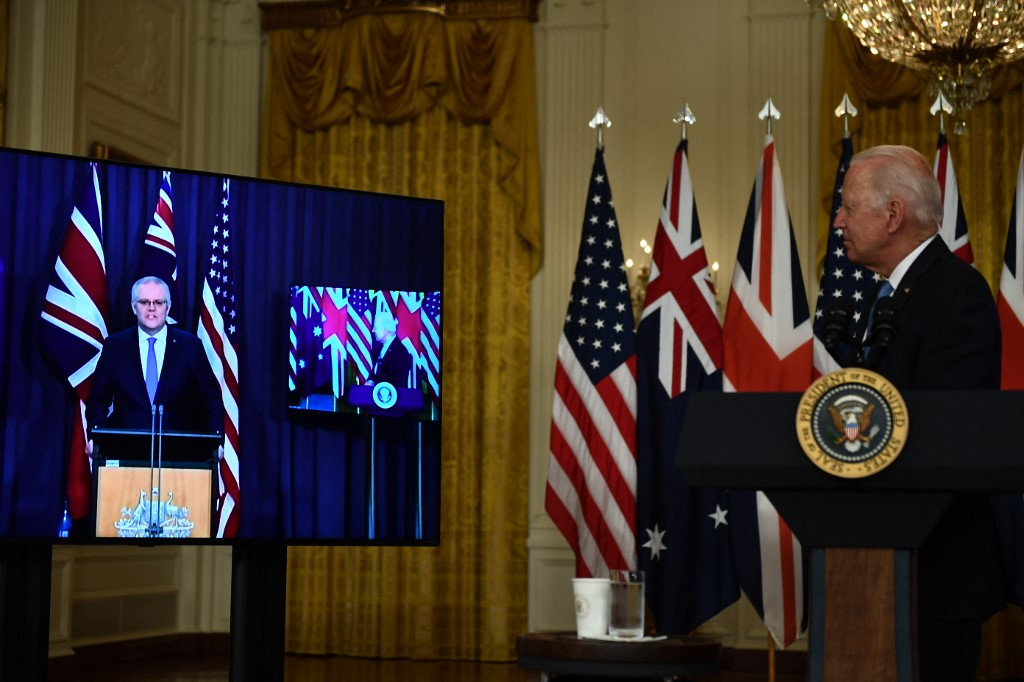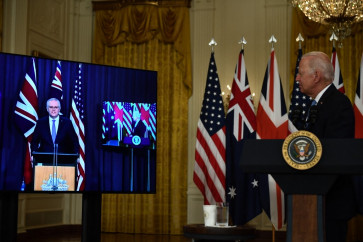Popular Reads
Top Results
Can't find what you're looking for?
View all search resultsPopular Reads
Top Results
Can't find what you're looking for?
View all search resultsAustralia enters uncharted waters with security pact that risks China trade
The security pact with the Western powers, including access to US nuclear submarine technology, will be seen by Beijing, which is embroiled in a long-running trade spat with Canberra, as a threat, said Michael Sullivan, International Relations Lecturer at Flinders University.
Change text size
Gift Premium Articles
to Anyone
A
ustralia's new security pact with the United States and the UK, seen as a move to contain China, may worsen strained ties with its biggest export customer, but China's insatiable appetite for resources may limit its punitive responses, say analysts.
The security pact with the Western powers, including access to US nuclear submarine technology, will be seen by Beijing, which is embroiled in a long-running trade spat with Canberra, as a threat, said Michael Sullivan, International Relations Lecturer at Flinders University.
"China will view the decision to expand defence cooperation with the US and UK and, in the future, base US strategic strike capabilities in Australia as confirmation that we are a growing military threat to its interests, such as the Belt and Road Initiative," said Sullivan, quoted by Reuters.
China has in recent years imposed hefty tariffs and restrictions on Australian exports including wine, beef and barley, and outright banned coal imports to express its displeasure over Canberra's foreign policies, though with only limited success so far.
The sums at risk are massive as Australia exported a record A$173 billion ($127 billion) of mostly resources to China in the 12 months to July, accounting for more than 35 percent of Australia's total exports. Australia bought just A$87 billion of, mostly manufactured, goods from China in the same period.
That torrent of cash has blessed Australia with a run of current account surpluses, while boosting miners' profits and dividends. It's also been a vital windfall to government tax receipts at a time when it is running huge budget deficits to fund emergency support for citizens in coronavirus lockdowns.
By far the biggest export earner has been iron ore as China's demand for steel drove prices for the mineral to all-time highs in May. Australia's metal ore exports in July alone reached A$19 billion, or more than 40 percent of total earnings.


















